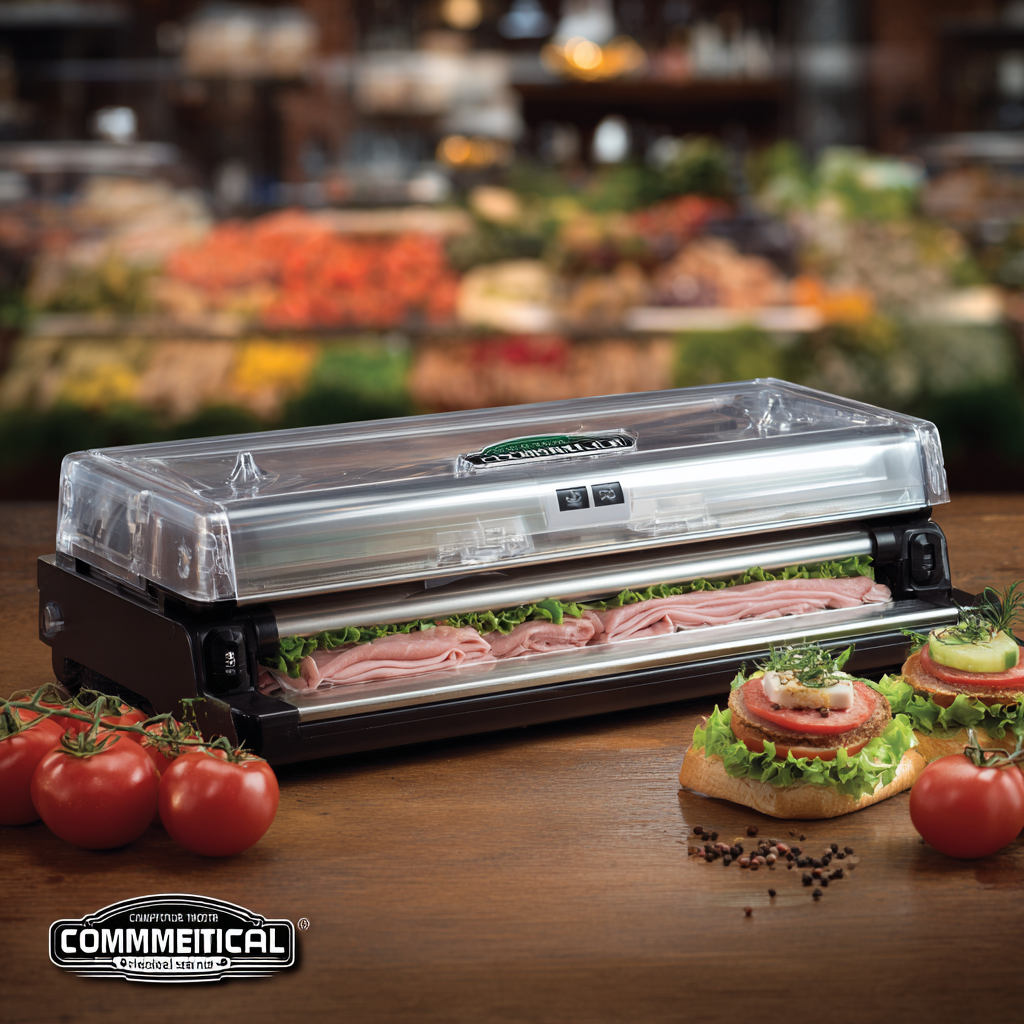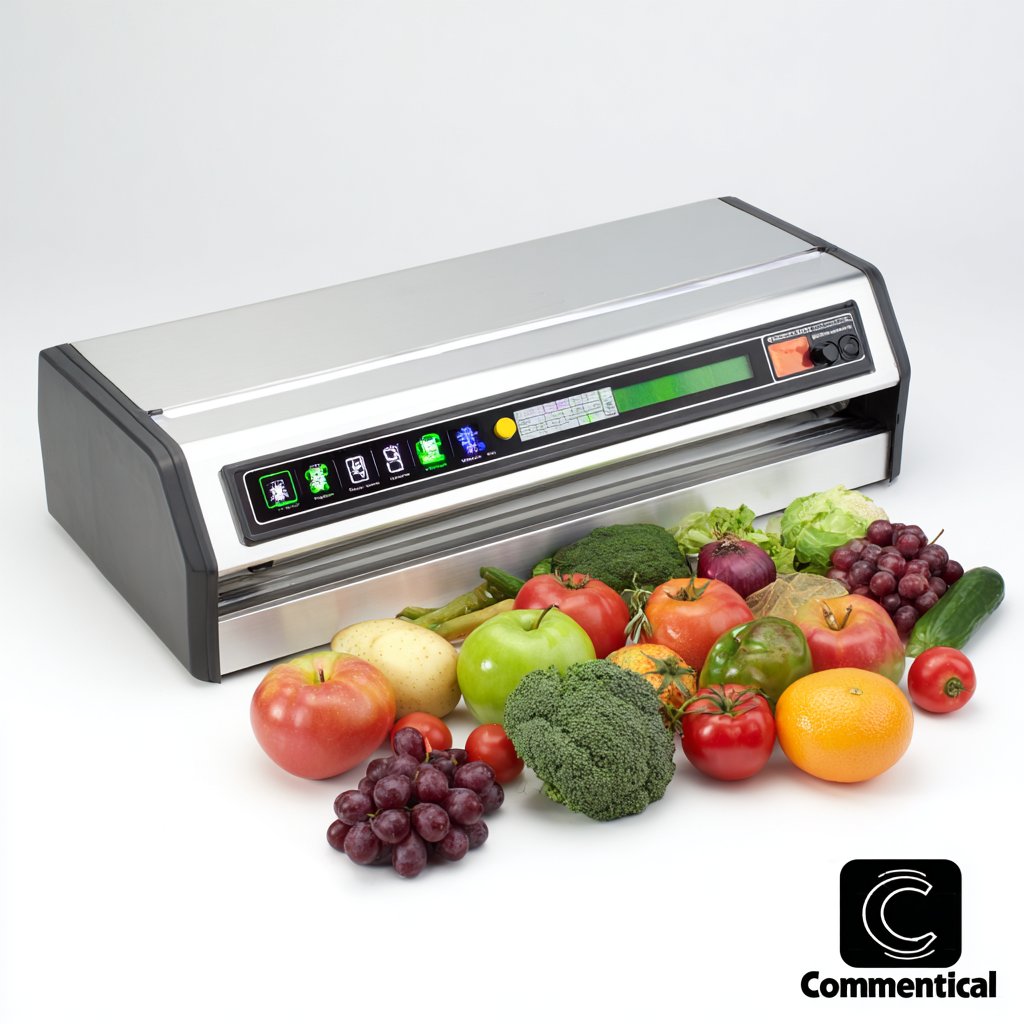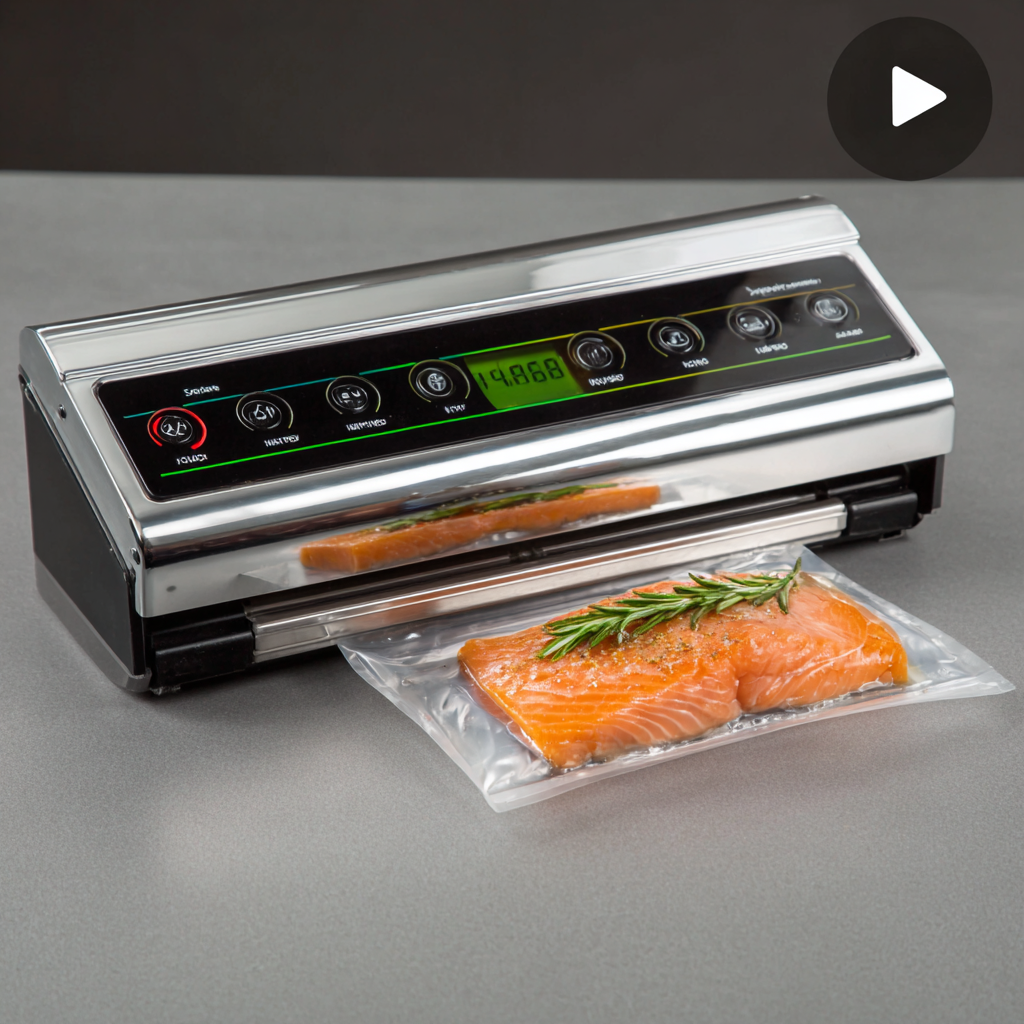About Us | Blog | FAQs | Tips/Troubleshoot | Contact Us | Machine Manuals | Demo Videos
How to Choose the Best Commercial Food Sealer for Your Business Needs
In today's fast-paced food industry, selecting the right equipment is crucial for maintaining quality and efficiency, and one of the most important tools for any business is a commercial food sealer. These devices not only prolong the shelf life of products but also enhance food safety and minimize waste, making them a valuable investment for both small and large enterprises.
 With a myriad of options available on the market, choosing the best commercial food sealer tailored to your specific business needs can be daunting. Factors such as sealing technology, durability, size, and price all play significant roles in this decision-making process.
This guide aims to provide insights and practical tips to help you navigate the selection process, ensuring that you invest in a commercial food sealer that will elevate your business operations and meet your quality standards.
With a myriad of options available on the market, choosing the best commercial food sealer tailored to your specific business needs can be daunting. Factors such as sealing technology, durability, size, and price all play significant roles in this decision-making process.
This guide aims to provide insights and practical tips to help you navigate the selection process, ensuring that you invest in a commercial food sealer that will elevate your business operations and meet your quality standards.
Table of Contents
[Hide]
Key Factors to Evaluate When Selecting a Commercial Food Sealer for Your Business
When selecting the best commercial food sealer for your business, several key factors should be considered to ensure you make the right choice. First and foremost, assess the sealing capability of the machine. Factors such as seal strength and versatility in handling different types of packaging materials, including vacuum bags and rolls, can significantly affect the quality and longevity of your food products. A reliable food sealer must be able to create airtight seals to prevent spoilage and extend shelf life, especially in environments where food safety standards are non-negotiable.
Another critical aspect to evaluate is the machine's ease of use and maintenance. Look for features such as intuitive controls, quick setup, and easy cleaning options that can save precious time in a busy kitchen or production environment. Additionally, consider the sealing speed and efficiency, as a machine that can handle high volumes will cater better to a fast-paced business operation. Investing in a commercial food sealer that combines efficiency with user-friendliness can enhance productivity and ensure consistent results, setting your business up for success.
How to Choose the Best Commercial Food Sealer for Your Business Needs
| Feature | Importance Level | Recommendation |
|---|---|---|
| Seal Type | High | Choose a machine with both external and chamber sealing options. |
| Seal Bar Length | Medium | Select based on average package size; longer bars are more versatile. |
| Pump Power | High | Opt for a stronger pump to achieve commercial-grade vacuum. |
| Durability | High | Look for stainless steel units for longevity in a busy kitchen. |
| Ease of Use | Medium | Ensure intuitive controls and easy setup for operators. |
| Safety Features | High | Choose sealers with automatic shutoff and overheating protection. |
| Warranty | High | Select models with at least a 1-year warranty for peace of mind. |
Understanding Different Types of Commercial Food Sealers and Their Applications
When selecting a commercial food sealer, understanding the different types available is essential for meeting diverse business needs. Vacuum sealers, for instance, are among the most popular choices, especially in the food service industry. According to a report by Technavio, the global vacuum packaging market is expected to register a CAGR of over 5% through 2025, reflecting the growing demand for food preservation methods that extend shelf life while maintaining product quality. Vacuum sealers are particularly effective for perishable items, as they remove air and prevent spoilage.
Another type to consider is heat sealers, which are ideal for packaging dry goods and pre-packaged meals. They create an airtight seal that protects products from moisture and contaminants. A survey conducted by the Food Packaging Association found that nearly 70% of food businesses report reduced food waste by using appropriate sealing solutions. Heat sealers are also customizable, allowing businesses to brand their packaging while ensuring freshness and safety.
Lastly, chamber sealers are valuable for larger operations, such as restaurants and food manufacturers. These machines allow for bulk packaging and are capable of sealing liquids or items with irregular shapes, significantly improving efficiency. Market Research Future indicates that the chamber vacuum sealing equipment segment is projected to grow notably, driven by advancements in technology and rising concerns over food safety. Each type of commercial food sealer offers unique advantages, making it crucial for businesses to assess their specific requirements before making a decision.

Industry Insights: How Food Preservation Can Reduce Waste by Up to 30%
In the food industry, waste management is a critical concern that can significantly impact both profitability and sustainability. Studies indicate that proper food preservation techniques, such as vacuum sealing, can reduce waste by up to 30%. This is largely due to the ability of commercial food sealers to extend the shelf life of products, allowing businesses to maintain freshness and quality for longer periods. By minimizing spoilage and maximizing inventory turnover, companies not only cut down on unnecessary waste but also enhance their bottom line.
Investing in a high-quality food sealer is essential for businesses that aim to adopt effective preservation strategies. These machines help in creating airtight seals that keep moisture and air out, ultimately slowing down the decomposition process. Additionally, commercial food sealers can be used for a variety of products, from meats to vegetables, making them versatile tools for any culinary establishment. By leveraging the benefits of enhanced food preservation, businesses can not only save money but also contribute to a more sustainable food ecosystem.

Cost-Benefit Analysis: Long-Term Savings with High-Quality Food Sealers
Investing in a high-quality commercial food sealer can significantly impact your business's bottom line. According to a report from the Food and Beverage Packaging Association, businesses that utilize commercial-grade food sealers can reduce food waste by up to 50%. With food costs accounting for a substantial portion of operating expenses—often ranging from 28% to 35%—the long-term savings achieved through proper sealing techniques can be substantial. This not only ensures that products maintain their freshness but also minimizes spoilage, allowing businesses to maximize the use of their inventory.
A cost-benefit analysis reveals that while the initial investment in a premium food sealer may range from $200 to $2,500, the return on investment can be realized within a year through decreased waste and extended shelf life. The National Restaurant Association states that a typical restaurant loses about 4% of its revenue due to food waste; adopting efficient sealing practices can help mitigate this loss. Furthermore, businesses that opt for durable, high-performance sealers often experience lower maintenance and replacement costs, enhancing their overall profitability. Investing in the right commercial food sealer is not just a strategic choice; it's a step towards ensuring sustainability and efficiency in culinary operations.
Cost-Benefit Analysis of Different Food Sealers
This chart illustrates the average cost and lifespan of different food sealers available in the market. Investing in a high-quality food sealer can lead to long-term savings and efficiency for businesses.
Essential Features to Look for in a Commercial Food Sealer for Optimal Performance
When selecting a commercial food sealer, focusing on essential features is crucial for ensuring optimal performance. One key feature to consider is the sealing speed; a high-quality commercial food sealer should be able to seal products quickly and efficiently, which can improve workflow in a busy kitchen. According to a report by IBISWorld, businesses in the food processing industry relying on efficient equipment saw a 15% increase in productivity last year. The ability to handle various bag sizes is also essential, allowing versatility in the types of products being sealed.
Another critical feature is the vacuum strength of the machine. A sealer's ability to remove air from the bag not only preserves food quality but also extends shelf life, with studies showing that properly vacuum-sealed items can last up to five times longer than their non-sealed counterparts. Look for models that offer adjustable vacuum strength settings, giving you control based on the specific needs of different food items.
Tips: When choosing a commercial food sealer, always check the warranty and customer service offered by the manufacturer; a good warranty can save you money in case of repairs. Additionally, consider models with easy-to-clean designs, as hygiene is paramount in the food industry. Lastly, keep an eye out for energy-efficient units that can help reduce operational costs over time.

